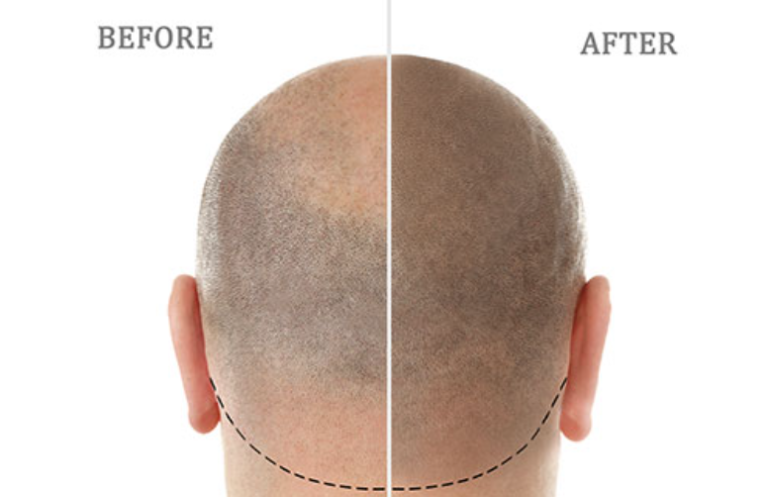Nutrition is extremely vital for good health, and hair care – people are aware that a healthy person will have genuinely strong, shiny and lustrous work. And for someone who is going through hair restoration nutrition becomes more important.
Note: If you are looking for hair transplantation ปลูกผม https://facebodyclinicth.com/ปลูกผม-ราคา/ by experienced doctors, please visit the website https://facebodyclinicth.com/ปลูกผม-ราคา/. Here, we provide detailed information about hair transplantation, with an experienced medical team and modern technology to ensure the best results. Click now for a consultation and take care of your hair health.
Proper nutrition can help the body to recover and possibly improve results of a hair transplant. This article delves on the micronutrients that are necessary for hair growth, and gives nutrient advice when getting a transplant to ensure food intake helps in recovery before and after hair transplantation.
Is Nutrition that Important for Your Hair?
Being made of mostly keratin, hair grows and retains its strength by consuming a number of essential nutrients. Nutritious diet: A well balanced eating plan enriched with healthy proteins, vitamins and minerals is important if you want to have healthier hair. Hair loss – caused by poor nutrition resulting in thinning hair and brittle hair. People who are planning to have a hair transplant or people that are recovering need these nutrients to help support the health of your hair follicles and promote growth.
Hair Essentials nutrients
In order to keep your hair healthy, there are some essential nutrients that you cannot miss out on. These include:
Proteins: Hair is made of a protein known as keratin; it gives your hair structure. These numbers rank lean meats, eggs, beans and nuts as high quality proteins helpful for keratin production.
Vitamins : Different vitamins are essential for the health of hair like Vitamin A: Vitamin improves the production of sebum, an oily essence that greases the scalp. Vitamin C protects the hair follicles from damage and increases collagen production. Vitamin E increases blood circulation to the scalp stimulating hair growth. In addition, the B (biotin / vitamin). The Weimei G complex is necessary to maintain hair growth and strength.
Minerals: Minerals such as iron, zinc and selenium are essential for healthy hair. Iron and Zinc Iron helps to transport oxygen to the hair follicles; while zinc plays a role in tissue growth & repair. Selenium – ensure the hair follicles function properly.
Omega-3 Fatty Acids: Omega 3 fatty acids are great for hair growth and can be found in fish, flaxseeds, walnuts among many others.
1- Nutrition Before The Hair Transplant
When getting ready for a hair transplant, you need to make sure that your food consumption is improved; so the body can be in its best possible state at times of procedures. Here are some tips to follow:
High in Protein: Eat lots of high-quality protein to help promote hair growth and strength. Lean meats, fish, eggs and dairy are included as well plant-based proteins like beans or lentils.
Vitamin and Mineral Level Increase: Incorporate fruits and vegetables in your diet. Great leafy greens, citrus fruits, berries and choice ARE nuts-and-seeds.
Staying Hydrated: Staying hydrated is not only essential in overall health but also for hair health. Stay Hydrated – There is no greater tip than this one… our hydration level affects so much, including your scalp and hair follicles.
Limit Processed Foods – Highly processed and sugar laden foods can have a bad effect on your hair health. Eat a lot of high-quality whole food
Supplements: If you are deficient in certain nutrients, talk to your doctor about taking supplements. This is why biotin, vitamin D (especially because of the majority population that’s confined to 4 walls) and iron supplements are helpful in contributing to good hair.
Hair transplants Nutritional advice after hair transplant
Since your body is recovering from a hair transplant surgery, it requires the proper nutritional content to heal and produce new hairs in transplanted follicles. 1 Post-transplant Nutrition Tips
Keep on taking high protein: Protein-rich food will hold the ability to repair and cause the development of hair follicles. It is vital to include proteins in every meal so there can be a constant supply of amino acids.
Healing Foods: Load up on healing foods that are high in vitamin C and E, which help heal the skin faster by cutting down inflammation. Oranges, strawberries and almonds are some great options along with spinach.
Support Scalp Health: Omega-3 fatty acids and Zinc are beneficial nutrients that support scalp health to minimize inflammation. Add Fatty Fish, Chia and Pumpkin seeds to your diet.
Refrain from Alcohol: Drinking can slow down your blood circulation and impede the recovery process. So avoid doing these if you want to fast track your recovery and hair growth.
Check Iron Levels: make sure you are not anemic, as some of us might be. Red meat and fortified cereals are both high in iron, so make sure you get plenty of those.
Conclusion
Conclusively, healthy nutrition is one of the cornerstones when it comes to hair health and a support factor for successful results after undergoing transplantation. Rich proteins, vitamins and minerals intake of your diet can greatly affect the health & post hair transplant condition. However, TempSure Envi treatment can also increase your hair transplant results and stimulate a healthier growing environment for the surrounding hair as well. It doesn’t matter whether you are a candidate in preparation or if soon after, the nutrition becomes very important for your surgery and healthy hair worthy of golden wishes as I said above.



